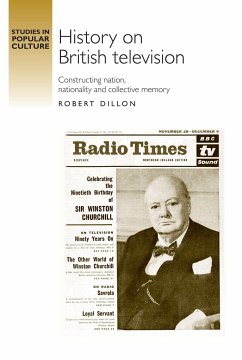From the resumption of post-war television in Britain, this book explores the production and consumption of factual history programming on British television. The chronological development of Western historiography is compared to phases of British television history production, highlighting how progressive developments in social and cultural trends have shaped what we make of the past and what the past makes of us. Charting the rise and dominance of television history as a popular cultural form, the book examines how the past has become a model for citizenship, prioritising certain groups and classes, marginalising others. Clearly defined chapters deal with the battle between the BBC and its commercial rivals to become the 'voice of the nation'. Each chapter critically examines how television history gradually developed into different genres re-representing the aspirations and collective memories of Britain through some of the country's most turbulent periods including the industrial unrest of the 1970s and the Falklands War. Detailed case studies reveal how the BBC almost sparked a Cold War incident in the 1950s, as well as detailing the racial memories contained in Culloden. The cult of the 'telly-don' and the rise of celebrity presenters such as Jeremy Paxman and living history are covered in detail. Engaging, informed, easy to read, the book is intended for researchers, teachers and students interested in not only television and historical studies, but for readers keen to understand how collective memory, television and history have become a potent propaganda mixture of stylised myths reinforcing nationality, identity and citizenship.

